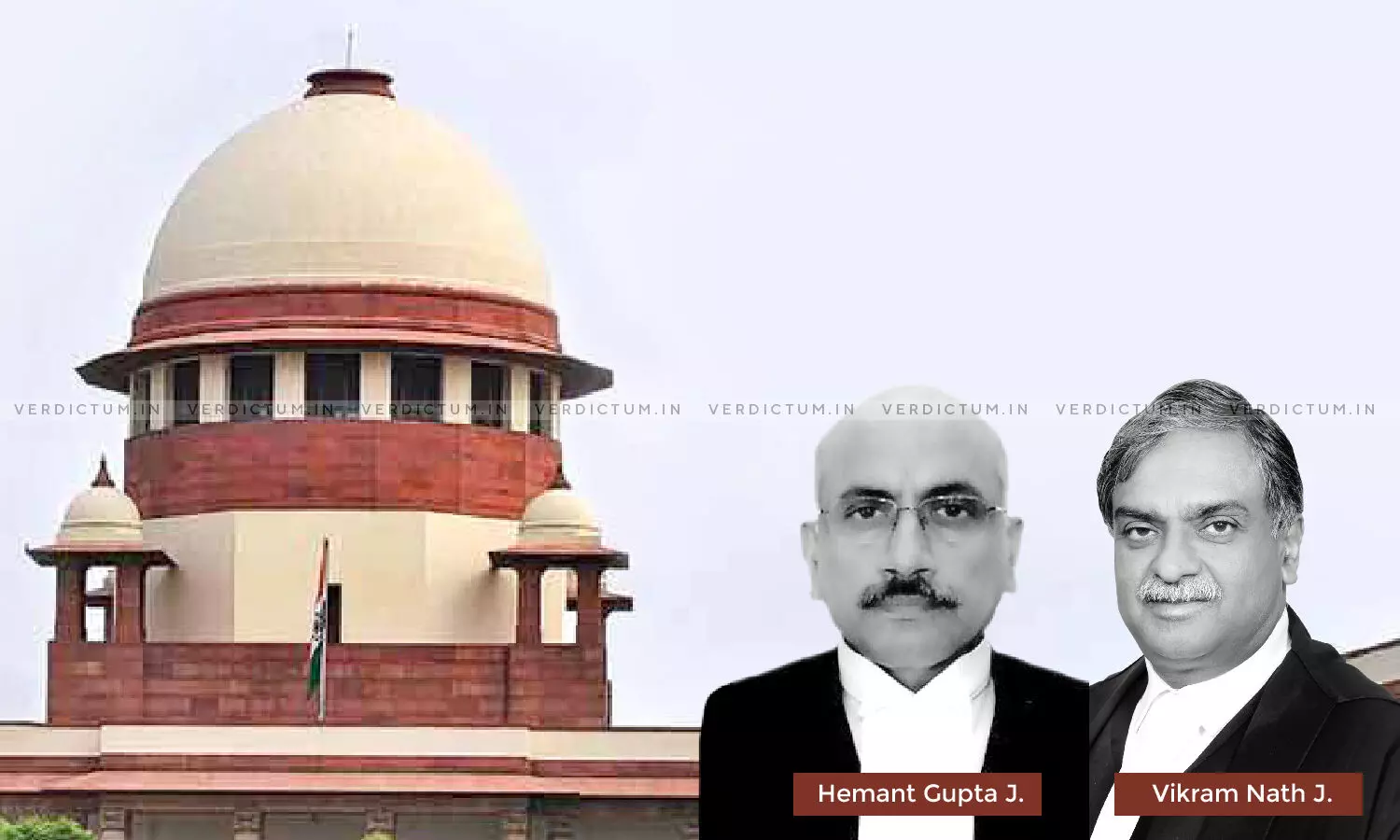
Property In Dispute Is Ancestral – Supreme Court Holds Both Parties Entitled To Equal Share
 |
|The Supreme Court in a property dispute observed that the property in question is ancestral, thus, both the parties to the case are entitled to an equal share.
A two-judge Bench of Justice Hemant Gupta and Justice Vikram Nath observed –
"The High Court has misread the most important evidence led by the appellants i.e., one of the brothers, Sopan (PW-2), who had deposed that the land at village Pirangut was ancestral land. The plaintiff and defendants including daughters of Maruti have equal share in the Pirangut and Lavale property."
Counsel Sudhanshu S. Choudhari appeared for the Appellants before the Apex Court.
In this case, the question for consideration was whether the properties at villages Pirangut and Nande were joint family ancestral properties in the hands of Maruti, the deceased son of Balaji, predecessor of the parties in appeal.
The admitted family tree showed that Balaji was the common ancestor. He left behind his four sons, Narayan, Raghunath, Maruti and Sopan. Maruti died on July 13, 1966. He married twice, both his wives had a similar name, Geetabai. The first wife, Geetabai, died in the year 1948 leaving behind the defendant Nos. 1, 2, 3 and 4, namely, Pandurang, Krishnakant, Ramchandra and Muktabai. Geetabai, his second wife and the original plaintiff, filed a suit for partition. She died during the pendency of the proceedings leaving behind two sons and three daughters, namely, Chandrakant, Ramesh, Uma, Shailaja and Sumitra.
There is no dispute in respect of the property situated at Lavale, which has been held to be a joint family property wherein a finding has been returned that the plaintiff would have a share in the estate.
In respect of a property at Nande, the High Court affirmed the finding that Pandurang/defendant No. 1, purchased the property at village Nande after the death of Maruti. It was also held that the appellant neither pleaded nor proved that there is sufficient nucleus of the income from the joint family from which the property at village Nande could be purchased. All three Courts had concurrently held that the property at Nande was not a joint ancestral property.
Thus, the issue which was dealt with by the Court was –
Whether the property situated at village Pirangut is an ancestral property, in which the appellants had a share.
The Apex Court noted, "The memorandum of partition was entered on 23.12.1961 when Maruti was alive, but the same was sought to be given effect in the revenue record vide Ex.104, Mutation No. 1274 on 28.6.1970. Such revenue record is in respect of land situated at village Pirangut, wherein, namely, Narayan, Raghunath and Sopan, sons of Balaji and Pandurang Maruti son of fourth brother Maruti, have been allotted separate share of land in the land situated at Village Pirangut. Pandurang had been given share as by that time Maruti had died. Therefore, Pandurang got the property by partition amongst four brothers alone."
Further, the Court held that High Court misread d the most important evidence led by the appellants i.e., one of the brothers, Sopan (PW-2), who had deposed that the land at village Pirangut was ancestral land. Mutation No. 1274 itself shows that the land was partitioned amongst the brothers. It was not a gift by Raghunath in favor of Pandurang/defendant no.1, as found by the High Court.
"Though Pandurang has stated that Raghunath has gifted the property to him but no gift deed has been produced on record nor the immovable property could be gifted orally. Therefore, the stand of the Pandurang that the land was gifted to him is untenable. Therefore, the findings recorded by the High Court is without any evidence," the Court held.
The Court held that the findings of the High Court cannot be sustained.
Thus, the Bench observed that Geetabai, the plaintiff, Pandurang, Krishnakant, Ramchandra, Muktabai, defendant Nos. 1 to 4, and Chandrakant, Ramesh, Uma, Shailaja and Sumitra, defendant Nos. 5 to 9 would have 1/10th share each. The share of Geetabai would devolve according to law of succession applicable. The purchaser shall be entitled to such interest in the property as its vendor had in terms of the above decree.
Accordingly, the appeal was allowed by the Court.
Cause Title - Gitabai Maruti Raut (Dead) Through LR. & Ors. v. Pandurang Maruti Raut (Dead) Through LRS. & Ors.
Click here to read/download the Judgment